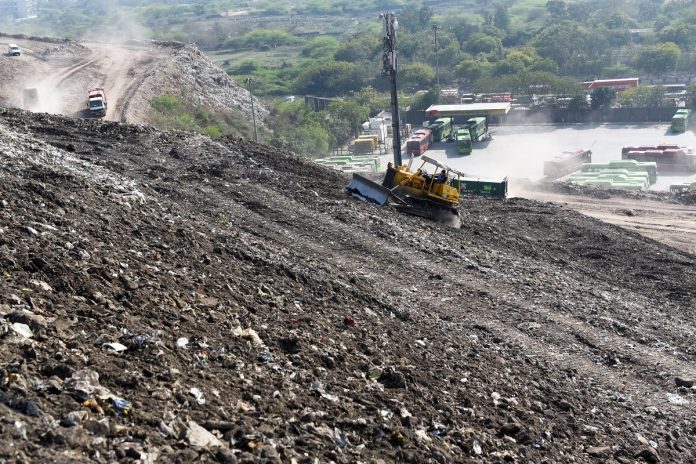Snapshot
The focus is now on addressing both ends of the solid waste management chain such as managing generation as well as safe disposal of municipal solid waste in a sustainable manner.
Addressing the serious environmental and other related problems arising out of huge dumpsites in the national capital, the Centre has taken up the issue in a high level meeting examining threadbare the progress made in the legacy waste sites at Okhla, Ghazipur and Bhalswa.
The Housing and Urban Affairs Ministry has already approved dumpsite remediation projects worth Rs 4,152 crore to remediate 963 lakh metric tonnes of legacy dumpsites occupying nearly 5,700 acres in more than 600 urban local bodies (ULBs) across 14 states/Union Territories.
The approved amount includes projects worth Rs 776 crore to remediate 253 lakh metric tonnes of waste covering 186 acres across three MCDs of Delhi. Of the approved amounts, central assistance of Rs 529 crore has already been released to states/UTs as first instalments, including Rs 174 crore released to government of Delhi.
As per financial norms of centrally-sponsored schemes, state/UT governments are required to put in matching shares from their own side, while disbursing the funds to respective ULBs.
The three MCDs reported that they collectively generate 11,000 tonnes per day of solid waste, of which approximately 5,900 tonnes per day are being scientifically processed at present, at three waste-to-energy plants situated at Narela Bawana, Okhla and Ghazipur sites.
At the three dumpsites, a total of approximately 42 lakh metric tonnes have been remediated till date, but the balance of untreated fresh waste that continues to be dumped at these sites offsets whatever remediation has happened till now.
The issue of legacy dumpsites across cities in India is a source of continuing environmental concern. The Swachh Bharat Mission – Urban (2.0) or SBM-U 2.0 being implemented by the ministry, has taken up the challenge in a targeted manner, in a first of its kind initiative in the country.
The focus of SBM-U 2.0 is now on addressing both ends of the solid waste management chain such as managing generation as well as safe disposal of municipal solid waste in a sustainable manner, to ensure that no new dumpsites are created going forward, and all legacy dumpsites are remediated.
Along with this, the mission has made provision for scientific landfills to dispose of untreated inerts and process rejects, to prevent fresh dumpsites being created. This has also been complemented by the directives of National Green Tribunal which has made it mandatory for all legacy dumpsites to be remediated in a time-bound manner.
Besides, the ministry has been investing in focused capacity building and behaviour change interventions among all stakeholders to bolster these efforts.
During the meeting, it was emphasised that the key to attracting private sector participation in this sector was robust source segregation which would enable subsequent processing of waste.
All MCDs were urged to step up their efforts to segregate their waste at source. It was further decided that MCDs and DDA would jointly discuss and settle all land related issues in order to facilitate the remediation process.
DDA was also requested to explore opportunities to use less than 6 mm fractions of inerts as soil enricher in their horticulture and biodiversity parks, to the extent feasible. In terms of funding issues pertaining to remediation, it was decided that the government of Delhi would explore possibilities for considering the green cess funds for transportation of excavated legacy waste, since dumpsite remediation would contribute to reduction of air pollution in Delhi.
Besides, the MCDs were requested to undertake detailed analysis for optimising process costs for dumpsite remediation, with comprehensive projectisation, and strong project monitoring measures. It was also decided that the ministry would deploy an independent agency to study the monitoring mechanisms carried out in cities including at Delhi and share the best practices of incorporating high quality monitoring at sites.
As an immediate follow-up, Delhi government was requested to disburse the central share of funds released by the ministry to all MCDs, after adding the requisite UT share to the funds.
MCDs were further requested to prepare detailed proposals for managing the fresh waste being generated daily and send the proposals to the ministry with due approval of the state government, so as to ensure that no additional dumpsites are created.
Chaired by the ministry’s secretary, the meeting was attended by senior officials of various ministries and organisations including DDA, Environment Ministry, MCD Commissioners, representatives from Central Pollution Control Board, National Thermal Power Corporation, and National Highways Authority of India.


